Events
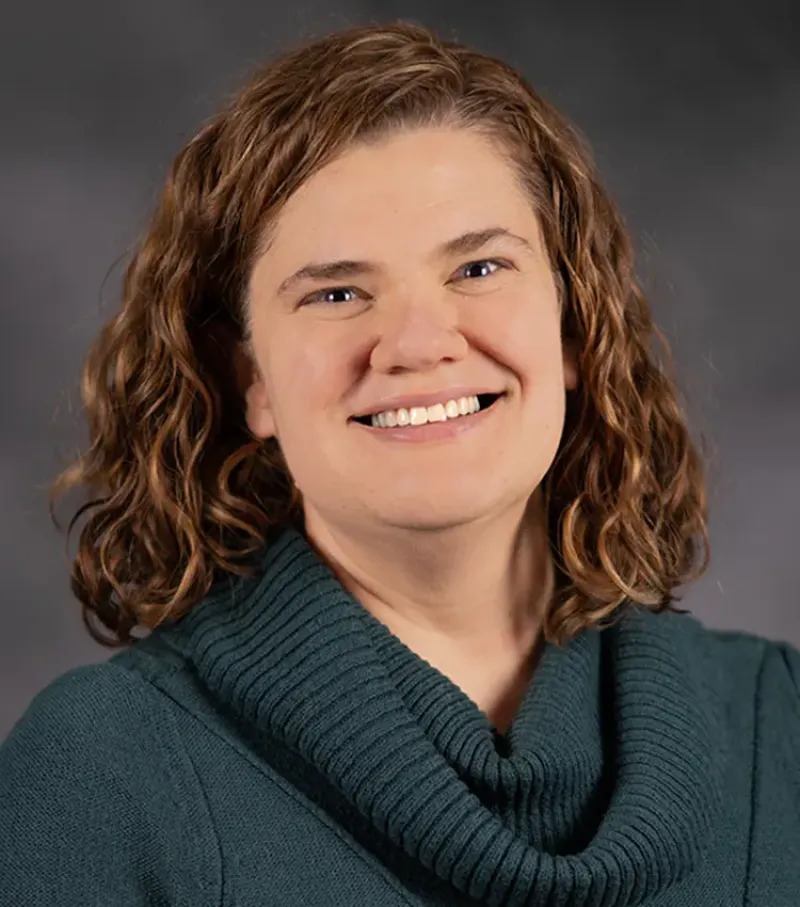
Title: Principle-based reasoning: A strategy for developing expertise in Physiology
Eric Burkholder, Jennifer Doherty, Assistant Professor at Lyman Briggs College and the Department of Physiology at MSU
Wednesday, January 28th, 2026 at 3:00pm in 1400 BPS and Zoom at https://msu.zoom.us/j/96470703707, Meeting ID: 964 7070 3707, Password: PERSeminar
Abstract: This talk introduces my research program on how students learn to use core scientific principles—like flux and mass balance—to make sense of complex physiological phenomena. Using classroom examples, student interviews, and data from NSF-funded multi-institution projects, I’ll show how these principles support student learning and how instruction can help students reason more generatively.
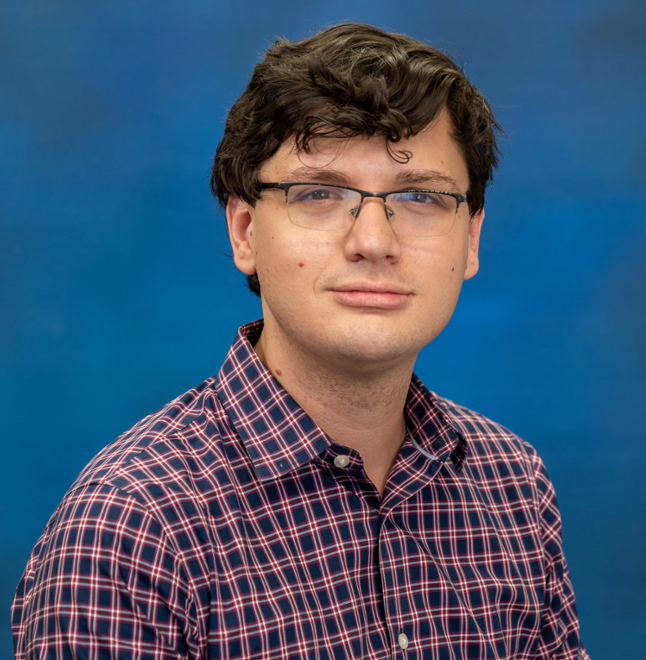
Title: Could we make physics more accessible by teaching real physics?
Eric Burkholder, Associate Professor of Physics at Auburn University
Wednesday, October 29th, 2025 at 3:00pm in 1400 BPS and Zoom at https://msu.zoom.us/j/96470703707, Password: PERSeminar
Abstract:
Unequal distribution of economic and educational resources is strongly linked to disparate
educational, financial, and health outcomes between those with and without access
to these resources. This is true worldwide, but is particularly pronounced in the
United States, where this unequal distribution of resources is structural because
of the decentralized nature of the public educational system. Physics, as a piece
of this educational system and one that is an important gateway to careers in science
and engineering, plays an important role in maintaining (or exacerbating) educational
inequalities. In this talk, I will present a comprehensive case study of a public
institution in the United States which uses institutional and course-level quantitative
data, as well as qualitative data, to illustrate the extent to which physics can play
a role in perpetuating these inequalities. I will also present promising results from
a comprehensive redesign of physics 1 at this same university, which drew on theories
of cognition and learning and offered opportunities for students who lacked access
to high quality secondary education to be successful. Despite the promise of this
intervention, it only addresses educational inequalities at the local level. I will
also present the design of a future study to be conducted in South America which aims
to revolutionize access to high-quality physics education across an entire nation.
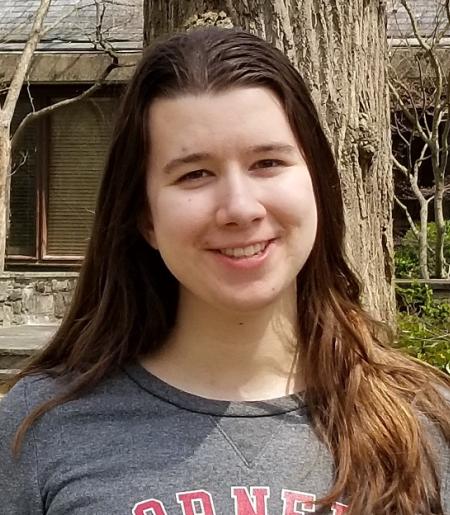
Title: Comparing approaches to using large language models in science education research
Rebeckah Fussell, PhD Candidate, Department of Physics, Cornell University
Wednesday, April 16th, 2025 at 3:00pm in 1400 BPS and Zoom at https://msu.zoom.us/j/96470703707, Password: PERSeminar
Abstract:
Large language models (LLMs) are a growing topic in the education research community.
These models pose both risks and opportunities for researchers and educators. In my
research, I aim to transform education research by leveraging LLMs to expand analysis
of rich data sources (e.g. student writing) while ensuring that the methods employed
at all stages of analysis are high-quality, trustworthy, and fair. As part of a larger
project that aims to measure the prevalence of experimental skills in students’ written
lab notes over time, we recently published a methodological study that compares LLM-based
and traditional machine learning methods for coding skills in lab notes. Specifically,
we used training data to fine-tune two different LLMs, and compared the performance
of these fine-tuned models to both a traditional machine learning approach (logistic
regression) and a prompt-only approach (i.e. asking an LLM to identify experimental
skills in a sentence without providing context or training). I will discuss implications
from this comparison study and the broader outlook for LLMs in discipline-based education
research. I will also discuss directions for future research, including using LLMs
to score open-ended assessment items consistently, equitably, and at scale.
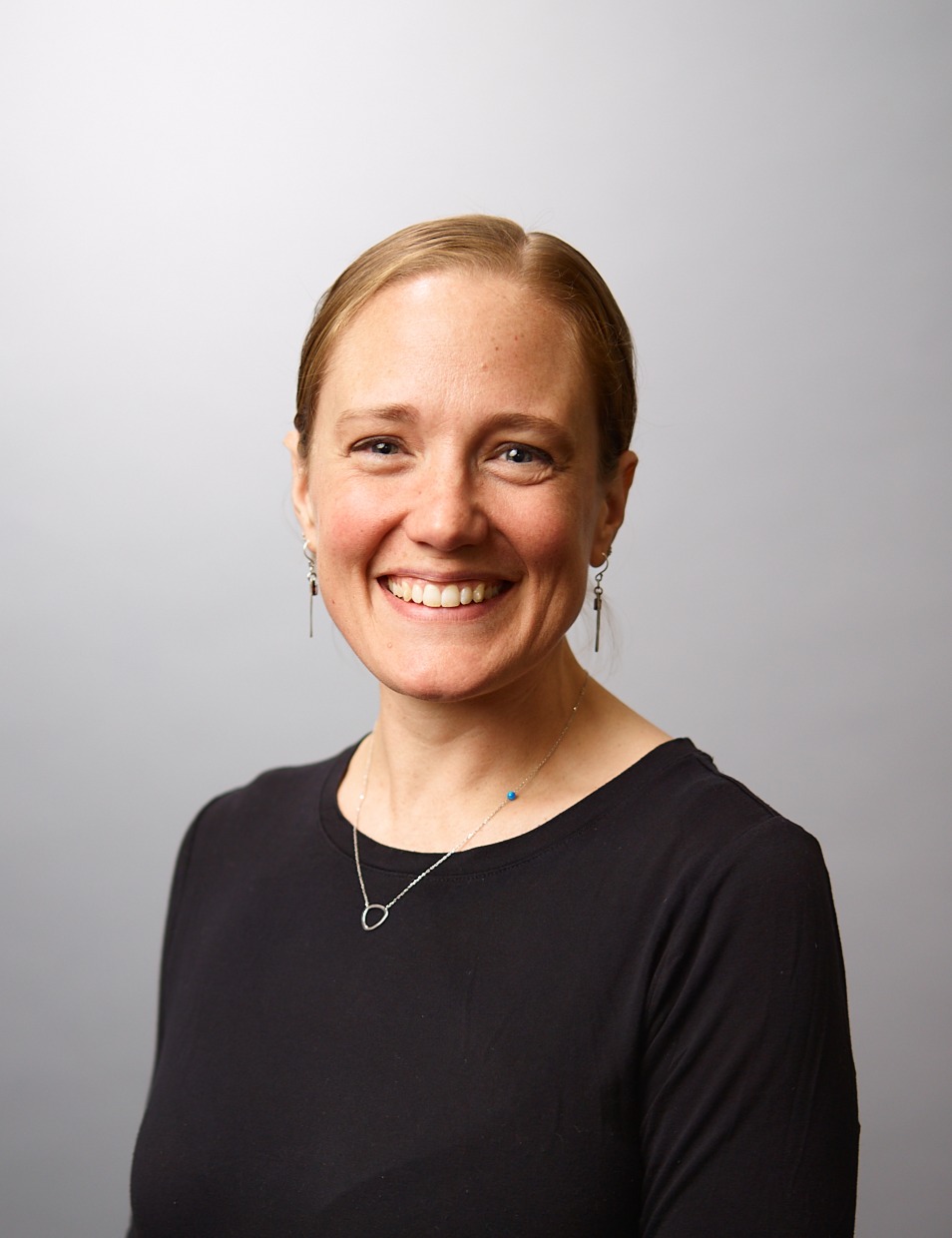
Title: The obstacles, stumbles, and growth in examining the “decolonization” of physics education
Abigail Daane, Professor of Physics, South Seattle College
Wednesday, April 2nd, 2025 at 3:00pm in 1400 BPS and Zoom at https://msu.zoom.us/j/96470703707, Password: PERSeminar
Abstract:
The use of the term “decolonization” has increased recently in efforts to improve
the field of education. Physics curricula reflect Eurocentric ideals and maintain
white, male-dominated narratives, providing low-hanging opportunities for increasing
diverse cultural practices and knowledge. In response, a voluntary professional learning
community (PLC) of physics educators formed to understand what it would mean to “decolonize”
their curricula and improve our educational practices. This presentation shares some
of the challenges that group encountered, the struggles to “do right,” and a raw reflection
of how growth in research can be possible when we receive critical and caring feedback
from our community.
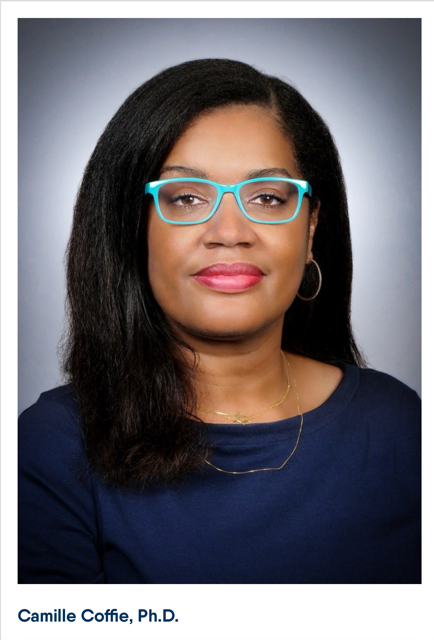
Title: Examining how pejorative stereotypes about students shape their experiences in physics graduate programs.
Camille Coffie, Lecturer, Department of Physics, Spelman College
Wednesday, March 12th, 2025 at 3:00pm in 1400 BPS and Zoom at https://msu.zoom.us/j/96470703707, Password: PERSeminar
Abstract:
Based on a qualitative research study supported by the APS Innovation Fund, this study
emphasizes the continued need to raise awareness about the influence of stereotypes
on the perception of marginalized populations and how these stereotypes affect their
matriculation in STEM graduate programs. The prevalence of dominant, often negative,
stereotypes forces students to face challenges such as microaggressions, bias, and
stereotype threats, which hinder their success and well-being. In the larger context,
these issues stand in opposition to efforts aimed at fostering innovation, multiplicity
of knowledge sources, and varied perspectives, all of which are essential to the advancement
of quality science.
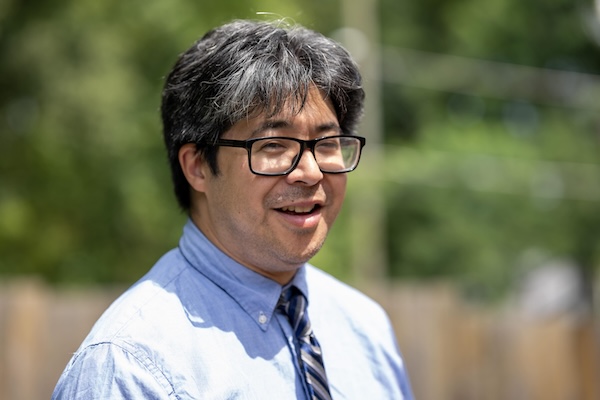
Title: OPTYCS: A Community of Practice Supporting Teaching and Scholarship at Two-Year Colleges
Anthony Escuardo, Professor, Department of Physical Science, Harold Washington College
Wednesday, February 19th, 2025 at 3:00pm in 1400 BPS and Zoom at https://msu.zoom.us/j/96470703707, Password: PERSeminar
Abstract:
OPTYCs (The Organization for Physics for Two-Year Colleges) is a collaborative project
that seeks to enhance the teaching and learning of physics at two-year colleges (TYCs)
by connecting TYC physics faculty to a national community of practice. I will delve
into the volunteer effort that led to the development of the OPTYCs grant and explore
the vision and strategic planning that shaped the project’s objectives. I will discuss
the project’s core work, which includes providing frequent and accessible professional
development opportunities that operate alongside sustained multi-year efforts specifically
designed to provide support and community to TYC faculty cohorts.
I will conclude by highlighting the work of the OPTYCs PER Interest Group that I help coordinate. This group focuses on identifying and supporting those who are already engaged in research and scholarly teaching at TYCs, as well as developing future initiatives aimed at expanding the audience of PER users and practitioners. By amplifying the reach of PER, OPTYCs aims to foster a more diverse and engaged community of educators committed to innovative teaching practices. To further this work, I hope to invite discussions on potential collaborations between OPTYCs and the broader physics education community.
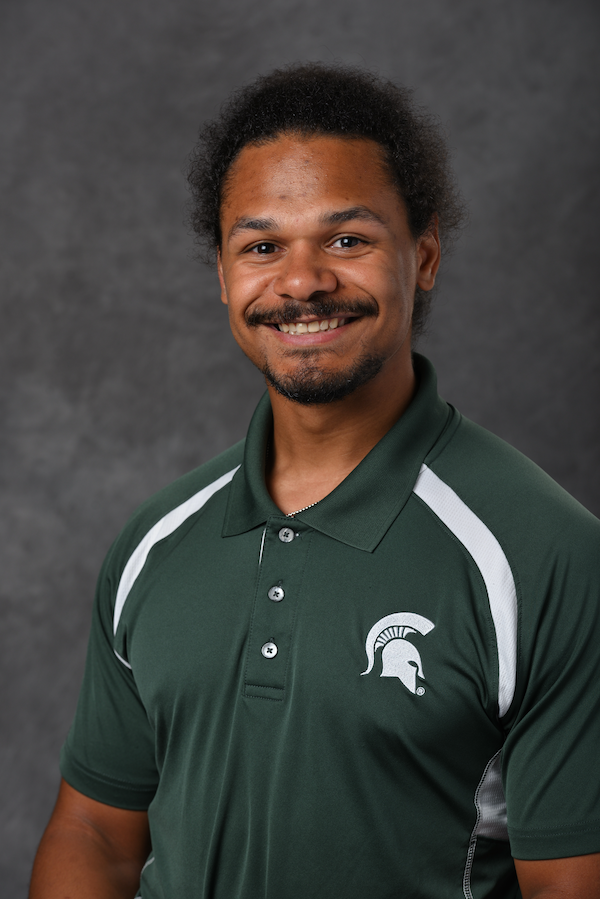
Title: Computational Thinking Assessment for Introductory Physics: Design, Implementation, and Future Directions
Justin Gambrell, Assistant Professor, Department of Computational Mathematics, Science, and Engineering, Michigan State University
Wednesday, January 22nd, 2025 at 3:00pm in 1400 BPS and Zoom at https://msu.zoom.us/j/96470703707, Password: PERSeminar
We have been developing a computational thinking assessment for introductory physics to support instructors in the integration of computational practices in introductory physics courses. We began this process by interviewing physicists both in academia and industry about the learning goals of computation in the physics classroom. We then designed an assessment to focus on the learning goals identified like translating physics to code. We piloted the assessment at four different institutions in Fall of 2023 that taught intro physics using VPython and analyzed the data for assessment validity and reliability. In this talk we will describe our steps towards assessment development and end with a discussion on what our future work holds given our validity and reliability results.
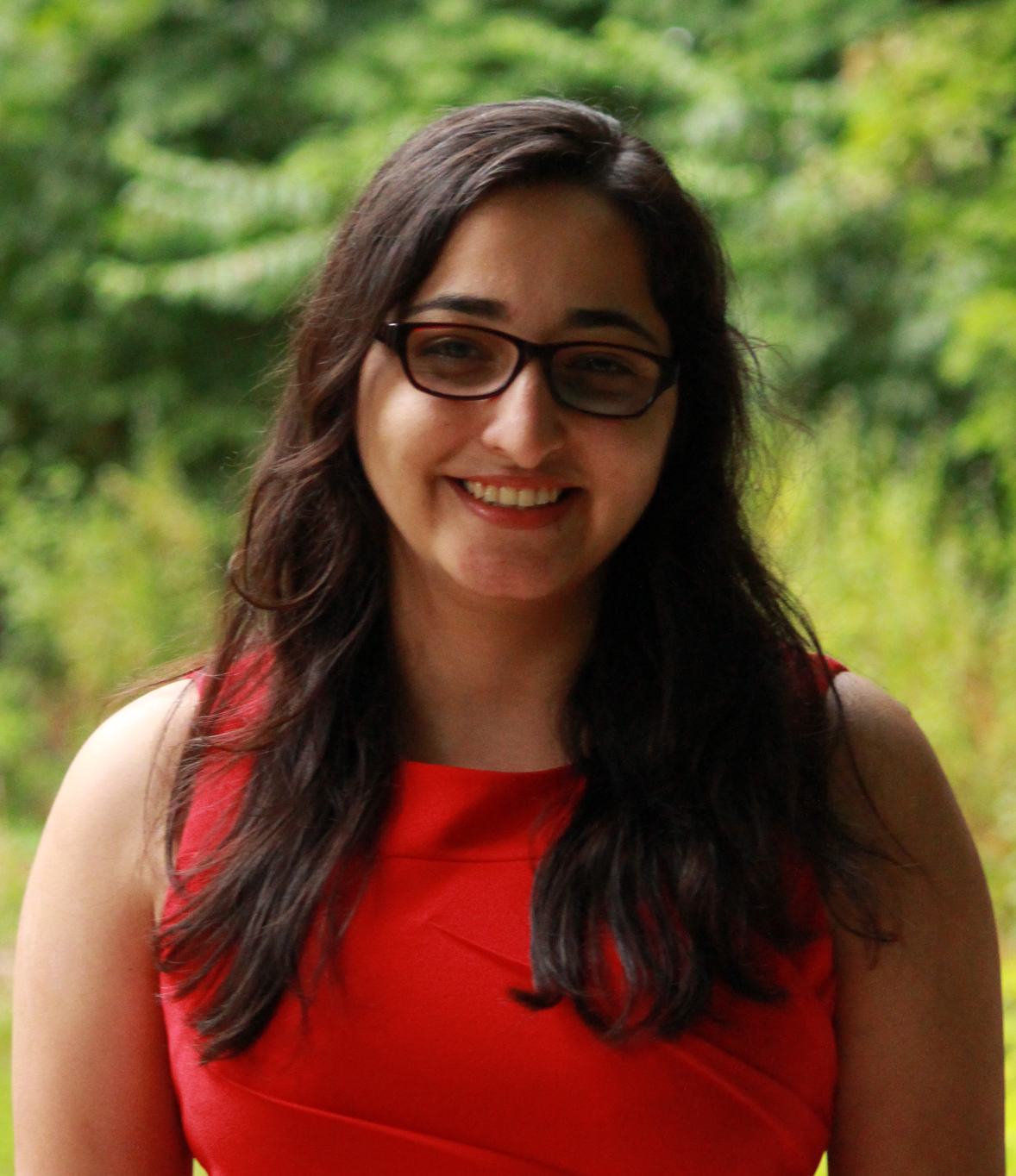
Title: Finding Your True North: A purpose driven approach to developing students’ STEM career self-efficacy, identity and sense of belonging
Shahnaz Masani (she/her), Assistant Professor, Department of Physiology and Lyman Briggs College, Michigan State University
Wednesday, December 4th, 2024 at 3:00pm in 1400 BPS and Zoom at https://msu.zoom.us/j/96470703707, Password: PERSeminar
What if students approached their collegiate journey with a purpose-driven as opposed to a destination-driven mindset? What if the silos between curricular and co-curricular experiences no longer existed?
Career exploration work is seen as ‘outside of class’ work for our students. This siloed approach creates structural barriers to access, forcing students to pursue these resources outside of the classroom, in unfamiliar and often exclusionary spaces across the institution. Students that commit to a career path exploring their options report less worth for their major, and less well-being and satisfaction in their careers. In this talk, I will introduce and share the impacts of the In Real Life (IRL) curriculum that we implemented across several semesters in our introductory biology class. Drawing on Social Cognitive Career Theory and Marcia’s Identity Formation Theory, we designed the IRL curriculum to engage students in (a) Identifying and articulating their professional purpose (b) Purpose-driven exploration and planning and (c) Building professional networks and making meaning of their in-class experiences within the context of their professional journey. We find that IRL: (a) Helps develop students’ purpose-driven lens, (b) Impacts the career identity development process by developing students' career self-efficacy and outcome expectations, and (c) Increases their sense of access and belonging. Higher education is a choose your own adventure where only some students are equipped with the tools needed to navigate this new world. By engaging students in purpose-related exploration and reflection in a disciplinary, student-centered class, we break down this structural barrier by equipping them with the tools and strategies needed to chart a path forward that aligns with their purpose, empowering ALL students to choose their own adventure.
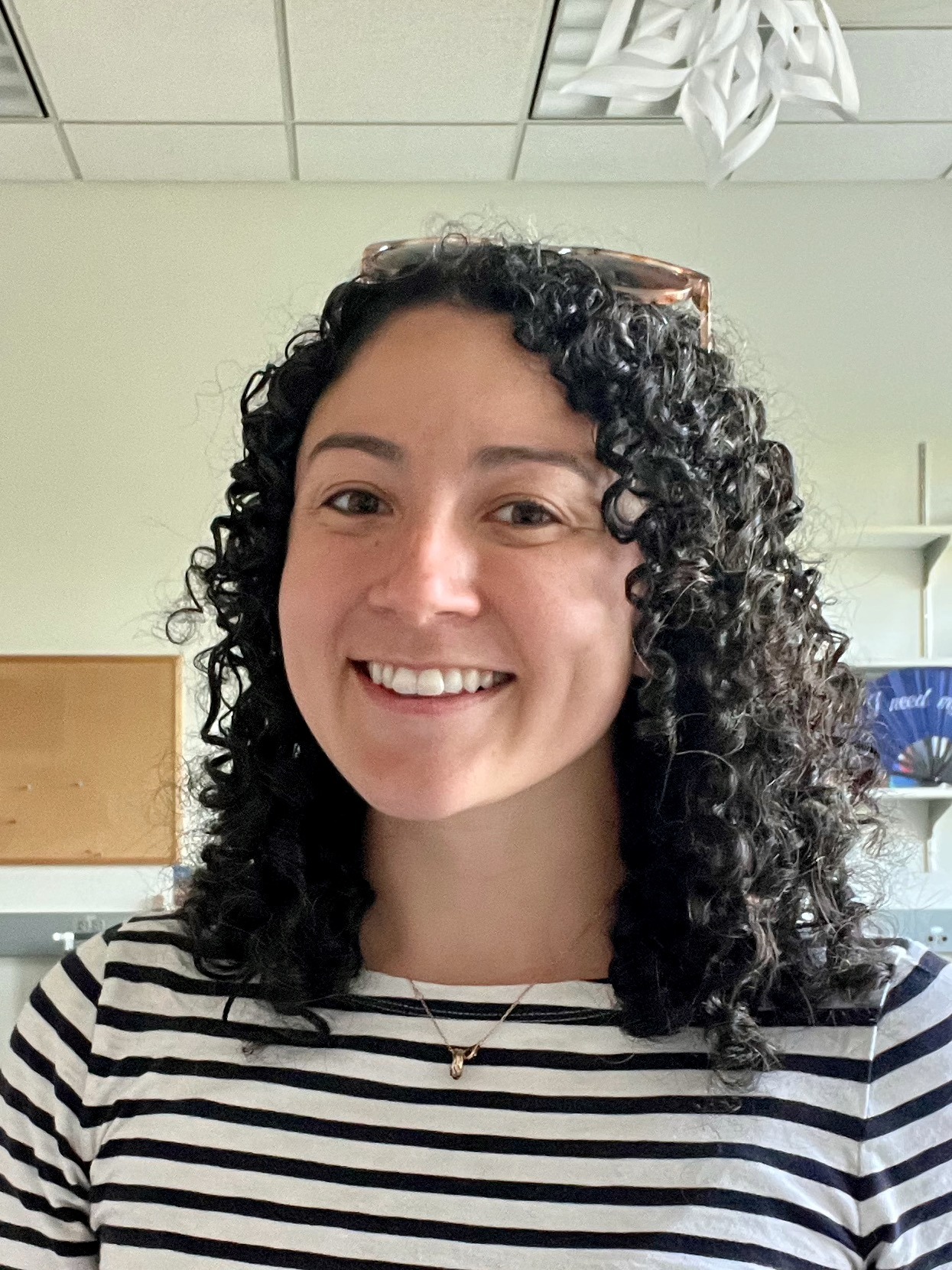
Title: Assessing and Moving the Needle on Quantitative Literacy
Charlotte Zimmerman (she/her), Research Associate, Department of Physics, Cornell University
Wednesday, October 30th, 2024 at 3:00pm in 1400 BPS and Zoom at https://msu.zoom.us/j/96470703707, Password: PERSeminar

Title: Developing students’ collective-based agency within diversity, equity, and inclusion efforts
Rob Dalka (he/him), Assistant Professor of Physics, University of Detroit Mercy
Wednesday, October 9th, 2024 at 3:00pm in 1400 BPS and Zoom at https://msu.zoom.us/j/96470703707 , Password: PERSeminar
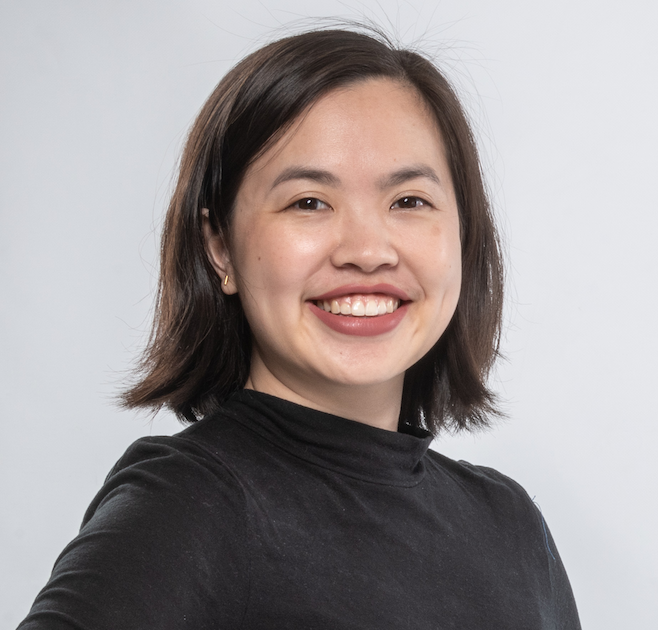
Title: Leveraging student-faculty partnerships for institutional change
Gina Quan (she/her), Associate Professor of Physics and Astronomy, San José State University
Wednesday, September 11th, 2024 at 3:00pm in 1400 BPS and Zoom at https://msu.zoom.us/j/96470703707 , Password: PERSeminar
Past Events for Academic Year 2023-2024
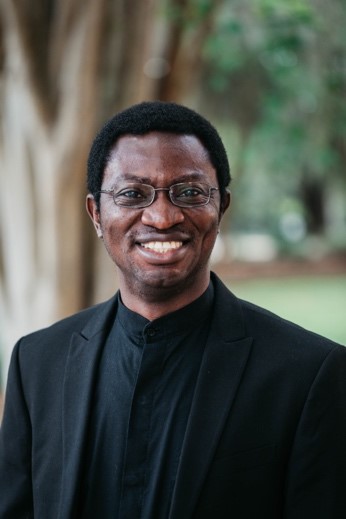
Title: Gender Dynamics within Small Groups in Non-traditional Undergraduate Physics Classes
Mark Okpanachi Akubo (he/him), Assistant Professor of Physics and Astronomy and Director of the Secondary Science Education Program at the University of Delaware
Wednesday, April 17th, 2024 at 3:00pm in 1400 BPS and Zoom at https://msu.zoom.us/j/96470703707 , Password: PERSeminar
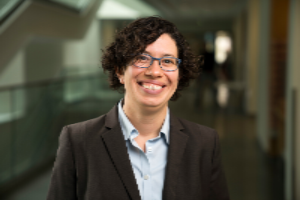
Title: Exploring Student’s Sensemaking of Data Analysis in a Three-Dimensional Lab Environment
Lauren Barth-Cohen (she/her), Associate Professor (Ph.D. Science and Math Education, University of California, Berkeley)
Wednesday, March 6th, 2024 at 3:00pm in 1400 BPS and Zoom
Abstract:
There is a growing interest in implementing reform-based lab courses in undergraduate physics that are student-driven rather than instructor-driven. In these courses, students develop and carry out experiments while simultaneously reasoning about their hypotheses, data collection procedures, collected evidence, and the relevant physics content. However, there is a limited understanding of how students engage in reasoning in these types of labs. At the University of Utah, a collaboration among faculty from the Department of Physics & Astronomy, School of Biological Sciences, and Department of Educational Psychology has implemented a series of reforms to our Algebra-based introductory physics lab courses that enroll a preponderance of biology majors and pre-health students. In our reform-based Introductory Physics for Life Sciences (IPLS) labs, we have implemented 3-dimensional (3D) instruction, and our undergraduates engage in semi-autonomous experimentation with a focus on analyzing and interpreting data. Within this setting, we have used the theoretical framework of sensemaking to examine the moment-by-moment details of students’ reasoning about a series of conceptual and procedural inconsistencies. We focus on what the inconsistencies are about and how students resolve them using a narrative case study analysis approach of a single group whose sensemaking is largely representative of the observed data corpus. Overall, we find that student sensemaking about conceptual and procedural inconsistencies is generally productive, given students’ resolutions and experimental progress. Capturing detailed sensemaking about inconsistencies highlights the richness of students’ reasoning processes in this understudied learning environment that is becoming more prevalent over time.
Zoom Link: https://msu.zoom.us/j/96470703707
Password: PERSeminar
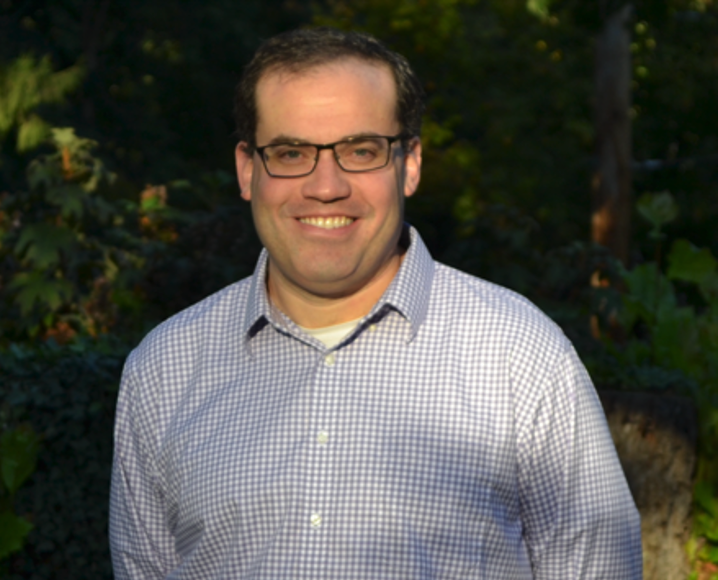
Title: The Lasting Impact of Introductory Physics for Life Sciences (IPLS)
Ben Geller (he/him), Associate Professor - Swarthmore College
Wednesday, February 7th, 2024 at 3:00pm on 1400 BPS and Zoom
Abstract:
Two primary goals of Introductory Physics for Life Sciences (IPLS) curricula are (1) to prepare students to effectively use physical models and quantitative reasoning in biological and biomedical contexts, and (2) for students to come to view physics as relevant to the life sciences. To assess whether these goals arebeing met, we conducted a longitudinal interdisciplinary study of the impact of IPLS on student work in later biology and chemistry courses, and on student attitudes toward physics. In this talk I will report on differences in student reasoning and attitudes that we found to be associated with prior or concurrent enrollment in IPLS. In particular, we found that IPLS students were more likely than non-IPLS students to reason quantitatively and mechanistically about particular biophysical phenomena, even up to two years after leaving the IPLS course, and were significantly more successful at building a physical model that combined ideas in a manner they had not previously seen. We also found that positive changes in IPLS students’ attitudes about the relevance of physics to the life sciences persisted for at least two years after the course ended. I will also describe our ongoing efforts to better understand how our IPLS course ecosystem – the pedagogy, the curriculum, and the messaging – is supporting the attitudinal gains that we have observed.
Password: PERSeminar
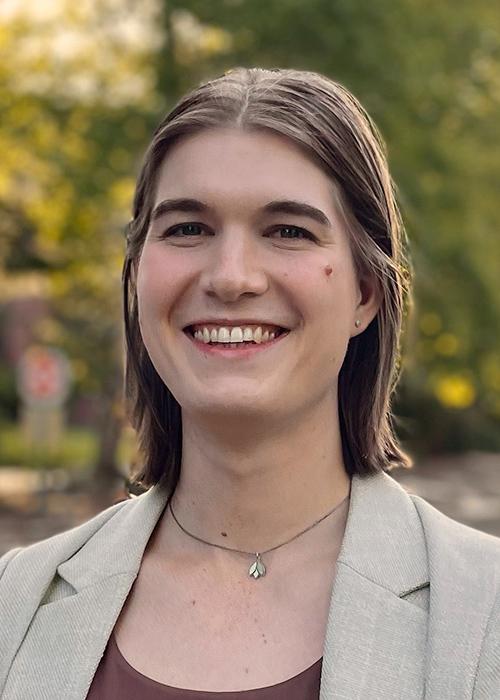
Title: Factors of Student Success in Computing and Physics
Patti Hamerski (she/her), Assistant Professor - Oregon State University
Wednesday, February 14th, 2024 at 3:00pm on 1400 BPS and Zoom
Abstract:
In this presentation, I address emergent problems that computing presents as it poses new challenges for students in newly integrated computational environments. I will provide the findings of a study conducted in an introductory undergraduate interdisciplinary computing course. My team conducted interviews with students to gain insight into how their experiences aligned with the development of self-efficacy, a psychosocial construct tied to persistence, aspirations, interests, identity, and academic performance. We then connected these experiences to student-articulated aspects of the course design to show how students can be supported when using computing as a tool for disciplinary learning, including physics. We found significance in experiences of struggle and success, as well as sweeping implications for the importance of personally relevant course material, curricular emphasis on building resources, and investments in supportive group dynamics. These findings bring fresh questions and challenges to STEM classrooms and curricula where computing is used.
Password: PERSeminar

Title: Investigating students’ perceptions of the inclusiveness of learning environment in
physics courses
Doris Li (she/her), Associate Professor - Oregon State University
Wednesday, December 6, 2023 at 3:00pm on 1400 BPS and Zoom
Abstract:
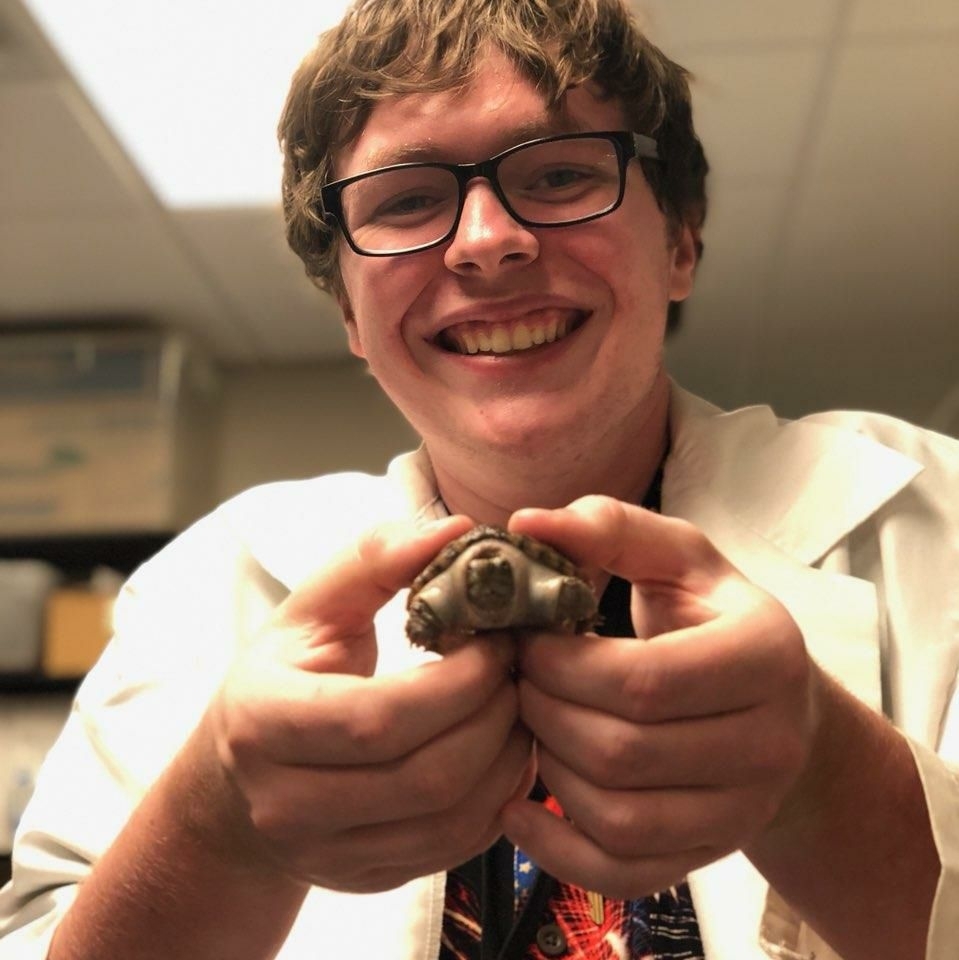
Title: Performing Physics, Performing Identity, and Performing Research in a Neurodivergent
Way
Liam G. E. McDermott (he/they), Graduate student - Rutgers University
Wednesday, November 8, 2023 at 3:00pm on 1400 BPS and Zoom
Abstract:
Neurodiversity, the celebration of the diversity of minds, is increasingly discussed in recent STEM education literature and across STEM departments. As more and more neurodivergent students enter higher education, it is paramount for educators, researchers, and administrators to comprehend neurodiversity, implement supportive structures, and facilitate the academic and professional success of neurodivergent students and colleagues. I Equally crucial is an examination of how the higher education system, by design, contributes to the stark disparities in degree completion and employment outcomes among neurodivergent students. This presentation synthesizes recent literature and incorporates my research on neurodivergent learning, identity, and experiences within STEM departments. Additionally, I propose evidence-based solutions aimed at deconstructing neurotypical-normative systems within higher education, as substantiated by extant literature.
Title: Windmills and Rockets: Integrating Social Justice Issues in Introductory Physics
E. Prasad Venugopal (he/him), Associate Professor - University of Detroit Mercy
Wednesday, October 18, 2023 at 3:00pm on 1400 BPS and Zoom
Abstract:
Windmills and Rockets: Integrating Social Justice Issues in Introductory PhysicsAbstract: Integrating social issues into the physics curriculum has the potential to “change the culture of science to be more welcoming and inclusive” by broadening the cultural contexts in which scientific knowledge is created and science is practiced. Yet, in many efforts at creating inclusive pedagogies the introductory curriculum remains unaffected by the deeply social nature of the traditional physics topics taught in these courses. Creating assignments and fostering reflections on who does physics, who doesn’t, and under what conditions has been a more challenging task.
This presentation will discuss two multi-week course projects that required students in introductory physics to read historical biographies and respond to the scientific and social issues in these stories. Assignments typically included two components crafted from the narratives: (1) a numerical physics worksheet, and (2) student reflections on social issues described in the stories. In the first semester students were required to read Margot Shetterly’s Hidden Figures while the second semester biography was The Boy Who Harnessed the Wind, by William Kamkwamba and Bryan Mealer. In both biographies, introductory physics concepts – Newtonian mechanics, energy conservation, electromagnetism – are embedded within rich sociocultural contexts involving race, gender, neocolonialism, and indigenous knowledge systems.
The talk will present some data on student attitudes and responses to the assignments, as well as outline new and ongoing research directions.
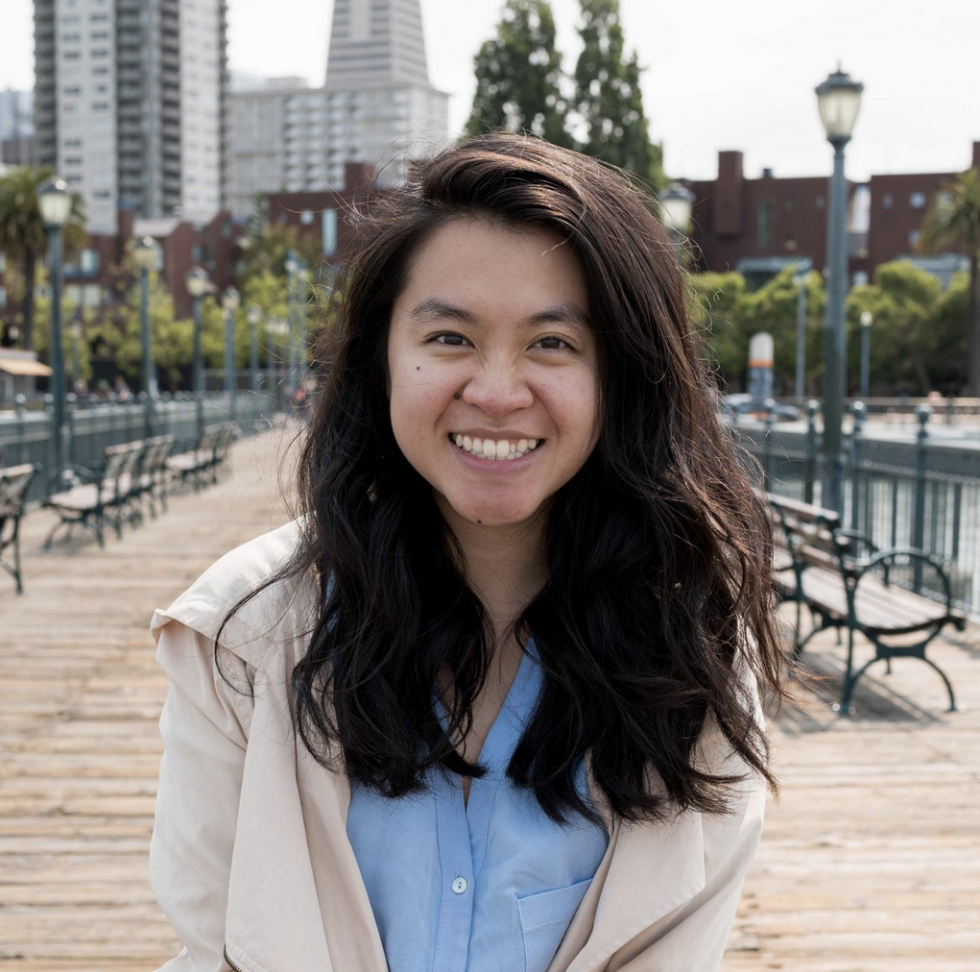
Title: To Engagement and Beyond: Exploring Science Engagement Profiles and the Role of Extracurriculars
in Shaping Identities Among Women of Color Engineers
Vicky Phun (she/her), Postdoctoral Researcher - Michigan State University
Wednesday, September 27, 2023
Abstract:
The research seminar will be a two-in-one presentation focusing on Vicky’s prior work as a graduate student in providing an overview of dimensions and patterns of engagement in science, as well as her dissertation work examining extracurricular experiences in shaping the identities of women of color in engineering. First, she will provide an overview of dimensions of engagement and share about eight distinct, momentary engagement patterns found across science classrooms and STEM programs among middle and high school learners using the experience sampling method. In addition, she will share about supports for promoting a full engagement profile (high across all affective, behavioral, and cognitive engagement dimensions). Second, she will share about her dissertation of exploring the role of affinity groups, internships, and undergraduate research in shaping the identities of women of color in engineering using mixed-methods research. Exploring identity affinity groups, internships, and undergraduate research together and as examples of supporting gender, racial/ethnic, and engineering identity highlighted the importance for viewing these experiences as complementary.